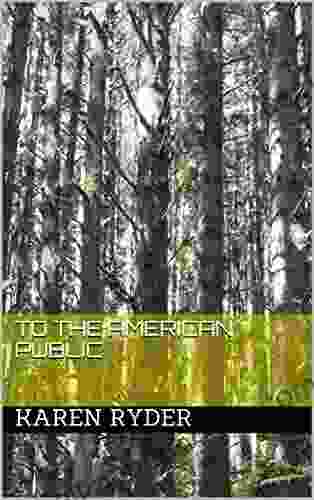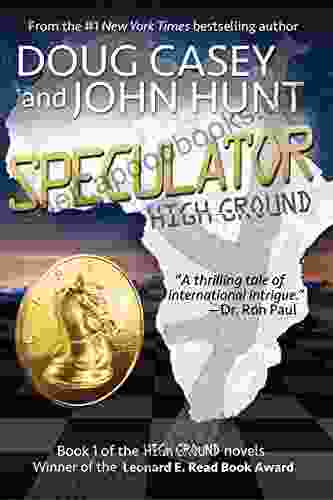Governing Security After War: A Comprehensive Guide for Policymakers and Practitioners

War leaves behind a legacy of destruction, both physical and social. In the aftermath of conflict, communities are often struggling to rebuild their lives and livelihoods, while governments are faced with the challenge of restoring Free Download and security.
5 out of 5
| Language | : | English |
| File size | : | 4943 KB |
| Text-to-Speech | : | Enabled |
| Enhanced typesetting | : | Enabled |
| Word Wise | : | Enabled |
| Print length | : | 316 pages |
| Lending | : | Enabled |
| Screen Reader | : | Supported |
| X-Ray for textbooks | : | Enabled |
Governing security after war is a complex and challenging task. It requires a comprehensive approach that addresses the root causes of conflict, as well as the immediate needs of the population. This book provides a comprehensive overview of the challenges and opportunities of post-war security governance.
The book is divided into three parts. The first part provides an overview of the challenges of post-war security governance. The second part examines the different approaches to post-war security governance, including military intervention, peacekeeping, and peacebuilding. The third part provides a set of case studies that illustrate the challenges and opportunities of post-war security governance.
This book is an essential resource for policymakers and practitioners who are working to govern security after war. It provides a comprehensive overview of the challenges and opportunities of post-war security governance, and it offers a set of case studies that illustrate the challenges and opportunities of post-war security governance.
Table of Contents
- Part I: The Challenges of Post-War Security Governance
- Part II: The Approaches to Post-War Security Governance
- Part III: Case Studies of Post-War Security Governance
Part I: The Challenges of Post-War Security Governance
The challenges of post-war security governance are vielfältig. These challenges include:
- The legacy of war: War leaves behind a legacy of destruction, both physical and social. This destruction can make it difficult to restore Free Download and security, and it can also create resentment and mistrust among the population.
- The lack of capacity: In the aftermath of war, governments are often struggling to rebuild their capacity to provide security. This lack of capacity can make it difficult to respond to security threats, and it can also create a vacuum that can be filled by armed groups.
- The presence of spoilers: Spoilers are individuals or groups who seek to undermine peace and stability. Spoilers can use a variety of tactics, such as violence, intimidation, and propaganda. They can also exploit grievances and divisions within the population.
Part II: The Approaches to Post-War Security Governance
There are a variety of approaches to post-war security governance. These approaches include:
- Military intervention: Military intervention can be used to stabilize a post-war environment and to create the conditions for peace. However, military intervention can also be counterproductive if it is not carefully planned and implemented.
- Peacekeeping: Peacekeeping is a form of international intervention that involves the deployment of unarmed personnel to monitor and enforce peace agreements. Peacekeeping can help to stabilize a post-war environment and to create the conditions for peace. However, peacekeeping can also be counterproductive if it is not carefully planned and implemented.
- Peacebuilding: Peacebuilding is a long-term process that seeks to address the root causes of conflict and to build a sustainable peace. Peacebuilding involves a variety of activities, such as promoting good governance, economic development, and reconciliation. Peacebuilding can be a complex and challenging process, but it is essential for creating a lasting peace.
Part III: Case Studies of Post-War Security Governance
This part of the book provides a set of case studies that illustrate the challenges and opportunities of post-war security governance. The case studies include:
- Afghanistan: After the war in Afghanistan, the international community launched a major effort to build a new Afghan government and to provide security. This effort has been successful in some ways, but it has also faced significant challenges.
- Iraq: After the war in Iraq, the United States launched a major effort to rebuild the country and to provide security. This effort has been largely unsuccessful, and Iraq remains a deeply unstable country.
- Sierra Leone: After the war in Sierra Leone, the United Nations launched a major effort to rebuild the country and to provide security. This effort has been successful, and Sierra Leone is now a relatively stable country.
These case studies provide valuable lessons for policymakers and practitioners who are working to govern security after war. They show that there is no easy solution to the challenges of post-war security governance, but that it is possible to create a lasting peace with careful planning and implementation.
Governing security after war is a complex and challenging task. However, it is an essential task for creating a lasting peace. This book provides a comprehensive overview of the challenges and opportunities of post-war security governance. It offers a set of case studies that illustrate the challenges and opportunities of post-war security governance, and it provides a set of recommendations for policymakers and practitioners who are working to govern security after war.
5 out of 5
| Language | : | English |
| File size | : | 4943 KB |
| Text-to-Speech | : | Enabled |
| Enhanced typesetting | : | Enabled |
| Word Wise | : | Enabled |
| Print length | : | 316 pages |
| Lending | : | Enabled |
| Screen Reader | : | Supported |
| X-Ray for textbooks | : | Enabled |
Do you want to contribute by writing guest posts on this blog?
Please contact us and send us a resume of previous articles that you have written.
 Book
Book Novel
Novel Page
Page Chapter
Chapter Text
Text Story
Story Genre
Genre Reader
Reader Library
Library Paperback
Paperback E-book
E-book Magazine
Magazine Newspaper
Newspaper Paragraph
Paragraph Sentence
Sentence Bookmark
Bookmark Shelf
Shelf Glossary
Glossary Bibliography
Bibliography Foreword
Foreword Preface
Preface Synopsis
Synopsis Annotation
Annotation Footnote
Footnote Manuscript
Manuscript Scroll
Scroll Codex
Codex Tome
Tome Bestseller
Bestseller Classics
Classics Library card
Library card Narrative
Narrative Biography
Biography Autobiography
Autobiography Memoir
Memoir Reference
Reference Encyclopedia
Encyclopedia Maxime J Durand
Maxime J Durand Dinesh D Souza
Dinesh D Souza Elaine Landau
Elaine Landau Gus Martin
Gus Martin Dmitry Samarov
Dmitry Samarov Pj Garcin
Pj Garcin John Mullen
John Mullen Robin Cocks
Robin Cocks Guido Parietti
Guido Parietti Donna T Haverty Stacke
Donna T Haverty Stacke Dmitry Shlapentokh
Dmitry Shlapentokh Kenny Dill
Kenny Dill Tania Chernova
Tania Chernova Iain Gale
Iain Gale Justin Morley
Justin Morley Beatrice Brae
Beatrice Brae Johanna Lindsey
Johanna Lindsey Thomas A Tarrants
Thomas A Tarrants Jennifer Diaby
Jennifer Diaby Donald L Robertson
Donald L Robertson
Light bulbAdvertise smarter! Our strategic ad space ensures maximum exposure. Reserve your spot today!

 Gabriel MistralUnlock Financial Freedom: Master Your Finances with 'Money Notes' by Meredith...
Gabriel MistralUnlock Financial Freedom: Master Your Finances with 'Money Notes' by Meredith... Ruben CoxFollow ·18.8k
Ruben CoxFollow ·18.8k Ralph Waldo EmersonFollow ·3.2k
Ralph Waldo EmersonFollow ·3.2k Kurt VonnegutFollow ·8.5k
Kurt VonnegutFollow ·8.5k Kenzaburō ŌeFollow ·16.2k
Kenzaburō ŌeFollow ·16.2k Julio CortázarFollow ·15.3k
Julio CortázarFollow ·15.3k E.E. CummingsFollow ·18.8k
E.E. CummingsFollow ·18.8k Darrell PowellFollow ·18.5k
Darrell PowellFollow ·18.5k Griffin MitchellFollow ·15.7k
Griffin MitchellFollow ·15.7k

 Larry Reed
Larry ReedBig Money, Big Oil, and the Struggle for Democracy
By [Author's Name] In this...

 Jackson Blair
Jackson BlairUnleash Your Creativity with The Ultimate Guide to Cricut...
Welcome to the extraordinary world of Cricut...

 Glen Powell
Glen PowellTo the American Public: Uncovering the Hidden Truths and...
An Incisive and Urgent Call to...

 Bryce Foster
Bryce FosterUltimate Guide to Starting a Mini Food Truck Business:...
: Embracing the Mobile Culinary...

 John Steinbeck
John SteinbeckHow To Make Different Styles Of Flute From Around The...
Embark on a...
5 out of 5
| Language | : | English |
| File size | : | 4943 KB |
| Text-to-Speech | : | Enabled |
| Enhanced typesetting | : | Enabled |
| Word Wise | : | Enabled |
| Print length | : | 316 pages |
| Lending | : | Enabled |
| Screen Reader | : | Supported |
| X-Ray for textbooks | : | Enabled |












